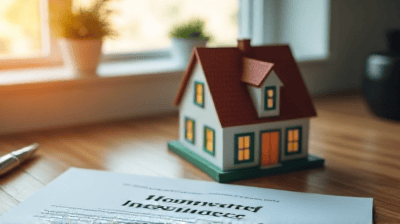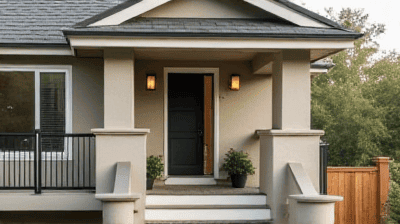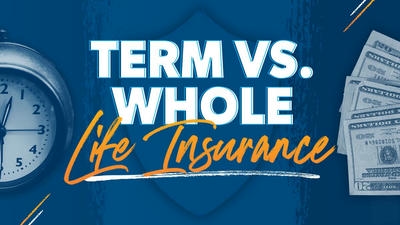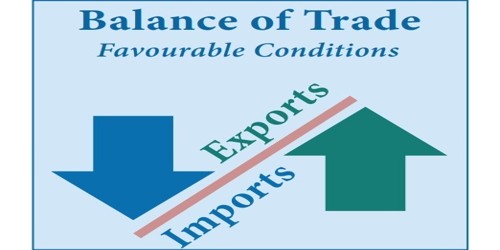
Homeowners insurance is often viewed as a mere formality, a necessary requirement by lenders when purchasing a home. Many homeowners may find themselves questioning the value of this type of insurance, especially since it involves an additional monthly expense. However, homeowners insurance is far more critical than it appears on the surface. It provides a vital safety net for one of the largest investments people typically make in their lifetime: their home.
Understanding Homeowners Insurance
What Is Homeowners Insurance?
Homeowners insurance is a type of property insurance that provides financial protection against various risks related to homeownership. It covers the physical structure of the home, personal belongings, and liability for injuries that occur on the property. Homeowners insurance policies typically combine several types of coverage, ensuring comprehensive protection for homeowners.
Key Components of Homeowners Insurance
Dwelling Coverage: This part of the policy protects the physical structure of your home from specific risks, such as fire, theft, vandalism, and certain natural disasters. Dwelling coverage typically includes the home's walls, roof, and foundation.
Personal Property Coverage: This component covers personal belongings inside the home, including furniture, clothing, electronics, and appliances. If these items are damaged or stolen, personal property coverage provides financial reimbursement to replace them.
Liability Coverage: Liability coverage protects homeowners from legal and medical costs resulting from injuries or damages to others that occur on their property. For example, if a visitor slips and falls in your home, liability coverage can help cover their medical expenses and legal fees if they decide to sue.
Additional Living Expenses: If your home becomes uninhabitable due to a covered event, this coverage helps pay for temporary living expenses, such as hotel bills and meals, while your home is being repaired.
Other Structures Coverage: This covers structures on your property that are not attached to your home, such as fences, sheds, or detached garages, from risks covered in the policy.
The Importance of Homeowners Insurance

1. Protects Your Investment
For most people, a home is the largest financial investment they will ever make. Homeowners insurance provides essential protection for that investment. In the event of a disaster or unexpected incident, having adequate coverage ensures that you are not left financially vulnerable. You can rest easy knowing that, should the worst occur, your insurance will help cover the costs of repair or replacement, minimizing the financial impact on your life.
2. Coverage Against Natural Disasters
Natural disasters can strike at any time, and their effects can be devastating. While homeowners insurance varies by location and policy, many standard policies cover damaging events such as fire, windstorm, hail, and theft. In certain areas, homeowners may also consider additional coverage options for events like earthquakes or floods, which are not typically included in standard policies.
3. Liability Protection
Liability coverage is a critical aspect of homeowners insurance that many homeowners overlook. Accidents can happen anywhere, and if someone is injured on your property, you could be held legally responsible. Liability protection not only covers medical expenses but also legal fees, should the injured party decide to sue. This coverage can save you from potentially crippling financial burdens arising from unforeseen accidents.
4. Peace of Mind
Having homeowners insurance provides significant peace of mind for homeowners. Knowing that you are protected from various risks allows you to focus on enjoying your home rather than worrying about what could happen. This psychological benefit can lead to a more relaxed and fulfilling home environment.
5. Mortgage Requirement
Most lenders require homeowners insurance as part of the mortgage process. This requirement is designed to protect the lender’s investment in your property. If you fail to maintain adequate insurance coverage, the lender may purchase a policy on your behalf, often at a premium rate, covering only their interest — not yours. By choosing your own insurance, you ensure that you have the coverage that best meets your needs.
6. Protection of Personal Belongings
Homeowners insurance extends beyond just the physical structure of your home; it also safeguards your personal belongings. In the unfortunate event of theft or damage, the financial reimbursement you receive can help you replace lost or damaged items, providing sensitivity to your financial situation and emotional well-being.
7. Coverage for In-Home Businesses
With the rise of remote work and entrepreneurship, many individuals operate businesses from their homes. Standard homeowners insurance policies may not cover business-related incidents, such as equipment loss, liability for client injuries, or natural disasters affecting business property. However, you can often add business coverage to your homeowners policy or purchase a separate business insurance policy to ensure that your work is protected.
Common Misconceptions About Homeowners Insurance
1. "I Don’t Need Homeowners Insurance if I Rent"
Renters may think they do not need homeowners insurance because they do not own the property. However, renters insurance is equally important as it protects personal belongings and provides liability coverage. In case of theft, fire, or natural disasters, renters insurance ensures that you are financially protected against the loss of belongings.
2. "My Homeowners Insurance Covers Everything"
Many homeowners wrongly assume that their homeowners policy covers all events. However, there are several exclusions in typical policies. For example, standard homeowners insurance does not cover damages from floods or earthquakes unless specifically added. Understanding the limitations and exclusions of your policy is vital to ensuring you have the coverage needed for your unique situation.
3. "All Homeowners Insurance Policies are the Same"
Homeowners insurance policies can vary significantly by insurer and geographical location. It is essential to shop around and compare various options, policy limits, deductibles, and coverage types. Customize your policy to ensure that it meets your specific needs and appropriately reflects your home’s risks.
4. "Homeowners Insurance Is Too Expensive"
While homeowners insurance can represent a noticeable expense, it is essential to evaluate this cost relative to your potential losses in the absence of coverage. In many cases, the protection provided by homeowners insurance far outweighs the cost. Researching different providers and policies can help you find affordable options and discounts.
Factors Influencing Homeowners Insurance Costs

Several factors can affect the cost of homeowners insurance. Understanding these factors can help you make strategic choices to lower your premiums while maintaining adequate coverage.
1. Location
The geographical location of your home plays a critical role in determining your homeowners insurance premium. Areas with high crime rates, severe weather patterns, or a history of natural disasters may see higher premiums due to the increased risk associated with these factors.
2. Home Value
The value of your home directly influences your premium. Higher-valued homes generally incur more expensive coverage costs since the potential loss in the event of damage or destruction is greater.
3. Construction Materials
The materials used in your home’s construction can affect your insurance costs. Homes made of fire-resistant materials or designed to withstand severe weather may qualify for lower premiums.
4. Security Features
Installing security features such as alarms, deadbolts, and surveillance cameras can help reduce insurance costs. Many insurers offer discounts for homes equipped with these security measures.
5. Claims History
If you have a history of filing frequent claims, your premiums may rise. Conversely, a clean claims history can result in lower premiums over time.
6. Policy Deductibles
Higher deductibles typically correlate with lower insurance premiums. However, it is crucial to choose a deductible that you can comfortably afford to pay out of pocket in the event of a claim.
How to Choose the Right Homeowners Insurance Policy
1. Analyze Your Coverage Needs
Start by analyzing your specific coverage needs. Consider factors such as the value of your home and personal belongings, potential risks in your area, and any additional protection you may require (such as for home businesses).
2. Compare Policies
Shop around and compare several homeowners insurance policies from various insurers. Look for coverage limits, exclusions, and premium costs. Online tools can simplify this process, providing comparisons from multiple providers.
3. Consider Discounts
Inquire about discounts offered by insurance providers. Many companies provide discounts for bundling policies or for homes with security features or claims-free histories.
4. Read Reviews and Seek Referrals
Research insurance providers by reading online reviews and seeking referrals from friends and family. An insurer’s reputation for customer service and claims handling can significantly impact your overall experience.
5. Evaluate Coverage Options
Understand the different coverage options available and consider customizing your policy to meet any unique needs. This might include additional endorsements for specific risks or a higher liability limit.
6. Review Annually
After selecting a policy, make it a habit to review your homeowners insurance annually. Life changes, such as major renovations, purchases, or lifestyle shifts, may require adjustments to your coverage.
Conclusion

Homeowners insurance is far more important than many people realize. It not only protects your home and personal belongings but also provides liability protection and peace of mind. Given the unpredictable nature of life and the financial risks associated with homeownership, having adequate homeowners insurance is essential for safeguarding your investment and ensuring the financial security of you and your loved ones.
Taking the time to understand the various components of homeowners insurance, recognizing its significance, and making informed decisions can help you build a solid foundation for your home's protection. As you navigate the complex world of homeowners insurance, remember to evaluate your unique needs, compare options, and continually reassess your coverage to ensure that you remain adequately protected.







